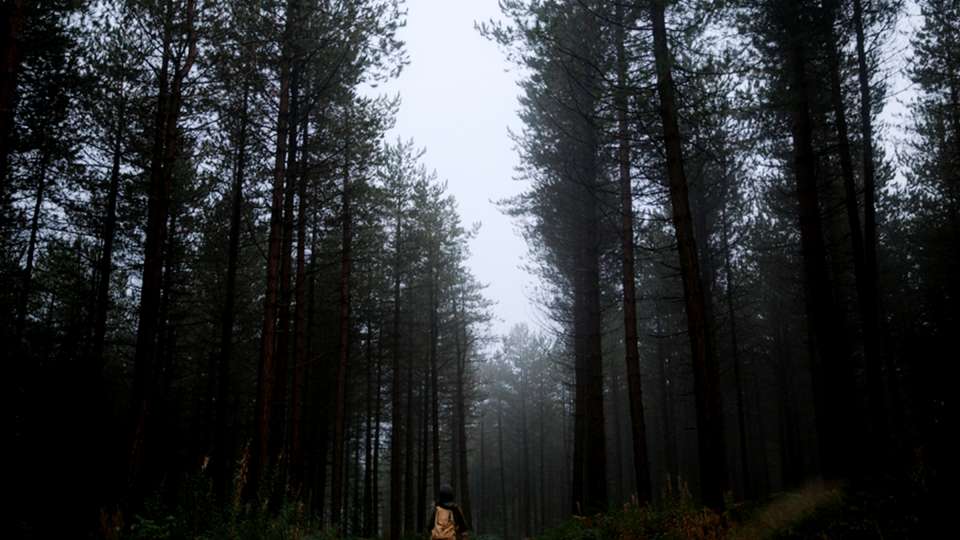
It’s an understatement to say that 2020 has been a rough year. Now something is coming to make it even worse: the cold, dark days of winter in the Pacific Northwest.
If the impending arrival of 4 o’clock sunsets and icy rain marks an annual low point in your energy levels and mood, you may wonder how you’ll get through the next few months with this year’s added stressors.
“It’s the culmination of so many things: the pandemic, political and social upheaval, the wildfires. 2020 is the year that just won’t let up, and winter makes our usual coping skills harder to access,” says Dr. Mike Huijón, a psychiatrist and medical director for inpatient psychiatry at UW Medical Center – Montlake.
While it’s important to acknowledge that this winter might be rougher than usual, that doesn’t mean you have to feel hopeless. Here are some ways to cope.
Notice your negative thoughts
As winter sets in, many of us will experience a decline in energy and motivation or feel like we’re doing things more slowly, Huijón says. This is a natural consequence of the lack of light, which affects our brain’s circadian rhythm.
Feeling a little down or in a bad mood sometimes is also normal.
It’s important not to push away or ignore negative feelings; it won’t make them disappear, plus recognizing your emotions and then moving on from them is important for overall mental health.
However, while recognizing negative emotions is helpful, ruminating on or wallowing in them is not.
“When you find negative thoughts or feelings sticking with you in a way that’s unusual, that’s worth paying attention to,” Huijón says.
Make a cope-ahead plan
While the future is pretty uncertain nowadays, the mental health issues that can come with winter aren’t necessarily.
“It’s a really great idea to plan ahead. We can’t necessarily predict what will be stressful, but if 2020 has taught us anything it’s that something is always around the corner,” Huijón says.
If you’re concerned about your mental health or have experienced problems in past winters, now is the time to prepare. There are a few specific things Huijón recommends you think of.
First, how will you know if your mental health is declining? Make a list of warning signs and symptoms to look out for.
It’s also important to note what your current effective coping strategies are, he says. (And if you haven’t already figured out what activities or routines help you feel better, now is the time.)
Coping will look different for everyone, and that’s OK. Maybe your mental health gets a boost when you take a walk or do a workout. Maybe meditation is more your style. Maybe you like to reach out to friends or do some self-care.
It’s worth noticing, though, if any of your coping strategies aren’t the healthiest. For example, drinking. While having a drink here and there to calm down or feel good isn’t a big deal, always relying on alcohol to make you feel better might not be the best idea.
“If people find themselves relying too heavily on strategies that have other consequences, maybe now is the time to start a healthier habit,” Huijón says.
Be kind to yourself
“Throughout the pandemic we’ve told ourselves to be kind to others, so extend that to yourself. Give yourself permission to respond to your own suffering,” Huijón says.
Many of us are kind to others but are self-critical, and that criticism isn’t helping our mental health. Try to notice when you’re being hard on yourself and switch your thoughts or actions to something kinder.
Being kind to yourself could mean cutting yourself some extra slack or setting more realistic goals for work and life. It could also mean taking more time for self-care activities that make you feel good.
Maintain social connections
Aside from the short days and cold weather, this winter may also be difficult for another reason: the holidays (or lack thereof). While the holidays aren’t a happy time for everyone, those who do enjoy spending the time with family may not be able to partake in comforting traditions and gatherings this year.
Despite the logistical challenges this year, it’s important to maintain connections with family and friends, Huijón says.
“Social connection is a really powerful protective tool for most mental health conditions, particularly mood problems. People who have more robust social connections have lower rates of illness and recover faster,” he explains.
Whether that means throwing a Zoom party, taking regular physically distanced walks or talking on the phone often, find ways to connect that feel right to you and don’t compromise your safety concerns.
It’s also important to recognize that you may have a different safety level than your friends and family do, and that’s something you’ll all have to work through.
Connecting with others doesn’t have to be all about positivity, either. If you need to confide in someone you trust about negative feelings or apprehensions about the coming winter, do so.
If you think you need it, find a mental health buddy you can check in with more regularly. Just knowing someone will be there for you can make all the difference, Huijón says.
Know when to get extra help
If you’ve tried multiple ways to make yourself feel better and aren’t noticing any improvements in your mood — or are even noticing that it’s getting worse — it might be time to seek professional help.
“When you don’t think you can handle it anymore, you should talk to somebody,” Huijón says.
There is a type of depression that hits people worst in the winter; it used to be called seasonal affective disorder (SAD) but is now recognized as the same thing as major depressive disorder (the clinical name for depression), just with a seasonal pattern, Huijón explains.
Symptoms of depression include: loss of pleasure in things that used to bring joy; feeling hopeless, helpless or guilty; feeling trapped or that things won’t get better; insomnia or sleeping too much; changes in appetite or weight; and trouble concentrating.
“All these things can be normal responses to a specific situation but when it’s starting to impair your ability to do other things in your life, it’s a problem,” Huijón says.
Finding a mental health specialist to talk with can be intimidating, but now because of the pandemic there are more accessible options than ever, such as telehealth appointments.
If you do find yourself needing help, be proud that you’re taking that step. While the future may be uncertain and winter may be coming, remember: things will get better no matter how hard they seem now.
The info in this article is accurate as of the publishing date. While Right as Rain strives to keep our stories as current as possible, the COVID-19 pandemic continues to evolve. It’s possible some things have changed since publication. We encourage you to stay informed by checking out your local health department resources, like Public Health Seattle King County or Washington State Department of Health.

 Healthy ideas for your inbox
Healthy ideas for your inbox





